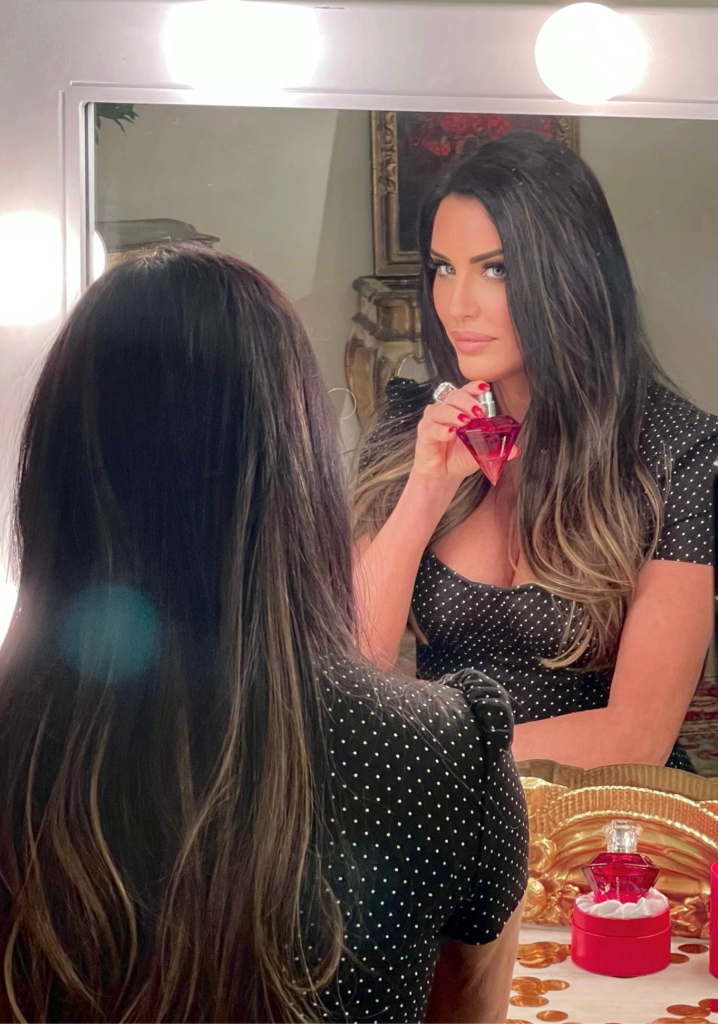By Anita A. Chlipala, LMFT
I’m late to the James Clear bandwagon. I only recently read his #1 New York Times bestseller Atomic Habits on the recommendation of a client.
Lately I’ve been finding myself struggling with time management. I haven’t been a fan of the word ‘routine’ because I viewed it as restricting, but I wanted to better handle the increased workload due to the pandemic and try something new.
What immediately struck me were the following words:
Habits do not restrict freedom. They create it. If you’re always being forced to make decisions about simple tasks—when should I work out, where do I go to write, when do I pay the bills—then you have less time for freedom…Building habits in the present allows you to do more of what you want in the future.
Not only did this make me think about myself, but as a relationship therapist, this made me think about my clients. Too busy to connect. Too tired for sex. Too stressed to be present. I tell them all the time: creating relationship habits can take away the time wasted on thinking about what to do and when to do it, which would give more time to enjoying the relationship.
Habits are behaviors you engage in on a regular basis—and eventually they become routine. And these small, day-to-day moments with your partner matter more than you can even imagine. In fact, relationship researcher and expert Dr. John Gottman calls these “sliding door moments.” Every day you have many opportunities to bring your partner closer, or push your partner away.
So, if you’re struggling in your relationship, establishing a routine can help.
Your routine is propelled by your identity.
In order for habits to last, Clear says that they must be addressed on the “Identity level,” which targets changing your beliefs. These beliefs can include beliefs about yourself, your partner, and your life situation. They include your assumptions and how you think things “should be.”
When I read this part, I felt a jolt of excitement. I talk about these internal beliefs with my clients all of the time! In our sessions, we dig for the beliefs that no longer serve them—or simply just don’t work. And once beliefs are changed and mindsets are shifted, behaviors align, which leads to long-lasting change.
So, what does this look like? Well, the focus is less on the goal and instead on who you want to become. For instance, instead of, “I want to run a marathon,” frame it as, “I want to become a runner.” Instead of, “I want to publish a book,” think, “I want to become a writer.”
I thought this is perfect for relationships too—but in the context of becoming the best version of you. Think about the type of partner that you want to become:
I want to become an effective communicator.
I want to become a better listener.
I want to become more comfortable with negative emotions.
I want to become more vulnerable and intimate.
I want to become a thoughtful partner.
I want to become more reliable and consistent.
I want to become more sexually expressive.
Clear emphasizes that the focus should always be on becoming that type of person, not pressuring yourself to obtain a particular outcome. For example, if your desired outcome is to have more sex with your partner, consider what kind of person would you want to be in order for your partner to want to have more sex with you? Does this mean you need to become more thoughtful? Romantic? Consistent and reliable? Emotionally available? Respectful?
Here’s the best part of this practice. Once you get going, this philosophy actually works both ways: your identity creates your habits, and your habits create your identity.
What’s your voice telling you—and how can you change it through evidence?
It’s also important to focus on the kinds of evidence—or the steps you take—that support your new identity. One of my clients, whom I’ll name Rosalie, avoided conflict with her husband for years. Her husband preferred to work through their problems with open communication and was frustrated that she shut down the conversations. We worked on her pessimistic beliefs around conflict: she grew up afraid of conflict and so viewed it as negative. She also thought problems would just fix themselves (note: this rarely worked). Rosalie’s go-to habit was sweeping things under the rug.
So she changed her beliefs. She started to tell herself that conflict can be healthy and effective. In less than 2 months, she actually sought him out to have a talk! Not only was her shift in beliefs important, but because her husband increased his respect of her perspective, she was able to gain evidence that tough conversations weren’t as bad or uncomfortable as she thought they would be. She was no longer afraid of conflict. By changing her beliefs about herself, she became someone who was comfortable with conflict.
It’s important to have a conversation with your partner about the type of person you want to become. After all, not only will you likely need their support in forming and maintaining this new identity—it’s an opportunity to enrich each other’s lives and grow closer and more in love.
Clear offers various strategies to create—and stick to—habits:
1. Implementation intention: you are specific about when and where you will engage in a particular behavior.
His research shows that the more specific you are about when you will do a behavior, the higher the probability of following through. But if you’re vague about an action, “I want to work out more,” then it won’t happen. I see this with my clients when they say, “We should do date night more often,” but weeks can go by and it never happens. I ask clients to schedule sex. I initially get a lot of resistance around it (“It will seem forced, it’s not romantic”), but the clients that have scheduled sex end up having more sex—and more romance.
Some examples of implementation intention:
We will talk about our day for 30 minutes at 9pm in the living room.
When I’m in the office, I will call my partner right after I finish eating lunch.
We will have sex every Saturday morning as soon as we wake up.
2. Habit stacking: the process of stacking your new behavior with one you are already currently doing.
One of my couples told me recently that they feel really close to each other after our sessions. They’re vulnerable, attentive and supportive toward each other during therapy. Because of this, they told me that physical intimacy, which had been almost non-existent, became a habit after each session. So the new habit (physical intimacy) was stacked onto the current habit (weekly therapy).
Other examples of habit stacking:
After you brush your teeth in the morning, you find your partner to give them a kiss.
After we sit down for dinner, we will each say one thing we appreciate about the other.
After we take a shower, we will make love.
As soon as I shut my office door, I will text my partner that I am heading home.
3. Temptation bundling: pairing a behavior that you want to do with a behavior that you need to do.
You’re already doing things on a daily basis that you look forward to. Now, pair it with something that you need to do to increase your chances of following through (but make sure to do what you need to do first).
After we connect for 10 minutes, I will check Instagram.
After I unload the dishwasher, I will watch Netflix.
After I put our child to bed, I will get on the Peloton.
4. Two-Minute Rule: a new habit should take less than two minutes to do.
You might be thinking, “Who does something for just two minutes?” You get into the habit of just showing up. It’s about establishing the beginning of the habit in the first place—and this helps you follow through on the entire habit immediately. “Go for a run” might mean putting on your running clothes and shoes.
Here are some relationship scenarios that can help replace bad habits with good ones in less than 2 minutes:
Scenario: You avoid uncomfortable talks at all cost.
Two-minute rule: You sit at the dining room table for 2 minutes to get into the habit of showing up for the conversation.
Scenario: You’re not into physical affection but your partner is.
Two-minute rule: Start with cuddling for 2 minutes anytime you start watching a show together.
When it comes to relationships, this ‘two-minute rule’ is a game changer. When you feel like your partner is showing up for you, it creates feelings of safety, trust, and connection.
5. Never miss twice: It’s about growth, not perfection.
Be realistic about habit formation never being perfect. Life is messy and will derail us. Clear’s solution for this is in the form of a mantra: Never miss twice.
Never miss two date nights in a row
If you miss catching up about the day because your child is running a fever, make a point to connect the following day, even if only for a few minutes.
Never miss calling your partner to see how their day is going more than once.
It’s about less work in the future.
Clear states that “the costs of your good habits are in the present. The costs of your bad habits are in the future.” No one gets married thinking they will divorce. No one starts a relationship thinking about breaking up.
Most people think that what brings my couples seek relationship counseling are the big things like cheating, money issues, or substance abuse. It’s not.
What brings my clients to therapy is disconnection. They don’t feel listened to or understood. They don’t feel appreciated. They feel taken for granted. It’s the small moments, built up over the course of months or years, that create these problems and feelings.
The good news is that you have the choice to put your relationship on a healthy trajectory—with just small moments. So start small, and stay consistent.
It’s the little behaviors that will give you a remarkable relationship.








